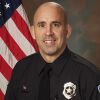This article was supposed to be a continuation of my series on police retirement, but considering current events, I could not write an article like that in good conscience. Instead, I would like to share my viewpoint on the challenges facing police-community relations.
First off, I want to apologize to the officers dealing with challenging situations all over the country and to all the community members who have longed for change. I apologize because my generation was given numerous opportunities to correct wrongs and create a better future for all of us, and we failed miserably.
We failed to lead courageously into difficult topics and conversations. We failed to make sustainable and lasting changes to our police training, tactics and evaluation metrics. We failed to remain committed to the process of creating inclusive change for all our citizens.
Many of you reading this may not agree with my view and that is perfectly acceptable. However, if you have got this far I thank you and want you to realize you are the hope for change, for creating a better profession and leading us back to our roots of being part of our communities.
So how can we repair broken police-community relationships? Here are eight steps to consider:
- Prepare to have open and honest dialogues with community leaders. Both sides will have to work together for us to repair the trust, understanding and mutual respect needed for our communities to thrive.
- Be willing to embrace change, look for opportunities to lead the changes and not wait for change to be forced upon us.
- Involve the community in the evaluation of your agency hiring standards, applicant screenings and hiring processes to ensure proper vetting processes are in place.
- Have more scrutiny and evaluation of the police training programs that create the foundation for our newest recruits.
- Ensure we are training and evaluating the de-escalation process during use-of-force training as much as we train to win.
- Critically evaluate our training programs and community expectations to ensure they are in alignment. Cheapest-bid training creates low-bid results.
- Ensure our evaluation metrics of officers meet community expectations. Data-driven policing, while great for statistics majors, does little to enhance public trust and build relationships.
- Be prepared to be patient. We did not get here overnight, and it will take time to repair the damage, but it is worth it.
I want to thank all current LEOs for standing tall, strong and brave in the face of unprecedented scrutiny. I ask for the sake of our country, children and communities that we can also find humility, grace and forgiveness as we seek to heal our profession and nation.



